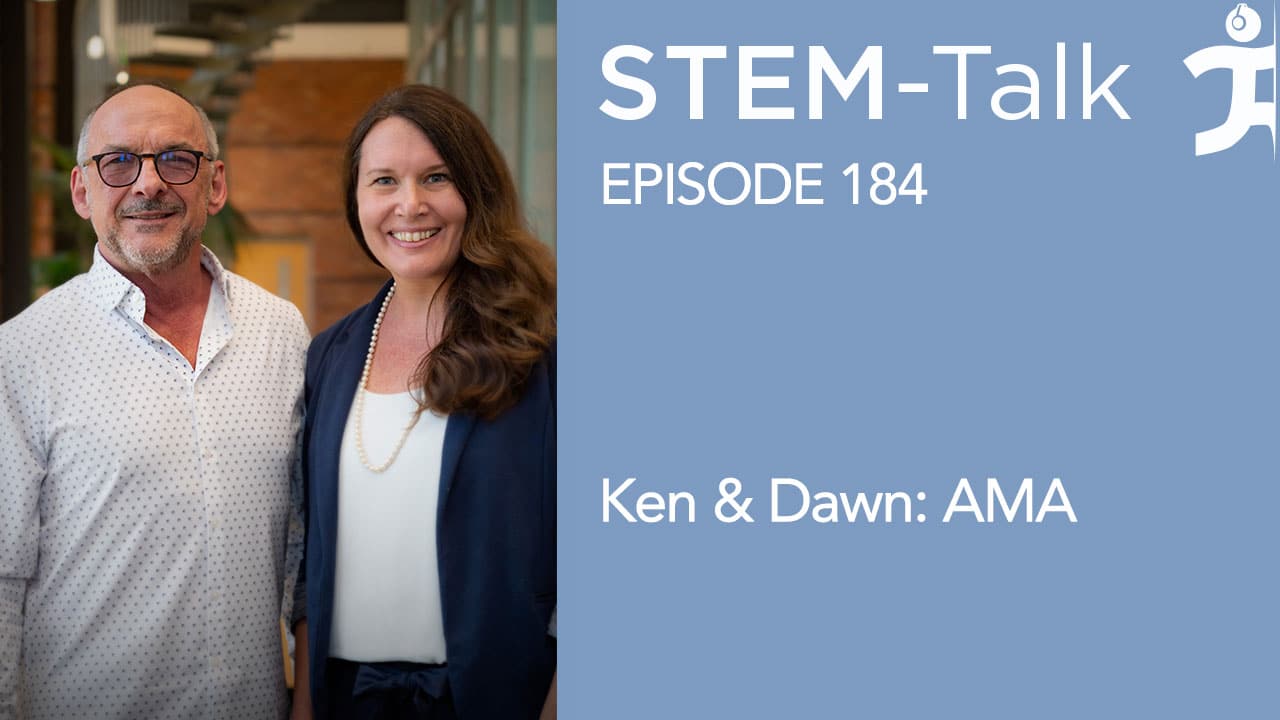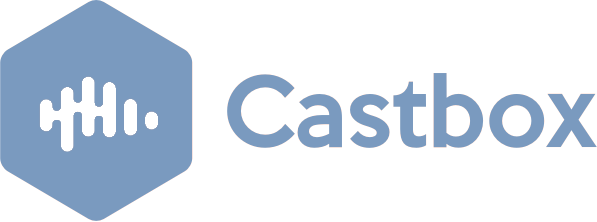STEM-Talk
Episode 184: Ken and Dawn answer listener questions on AI, grip strength, ketamine, protein, digital twins, and more!
// Jul 10, 2025

It’s time for another episode of Ask Me Anything. Dawn and Ken answer listener questions that range from generative AI to whether grip strength is a biomarker for longevity and the potential of ketamine as a treatment for depression. Dawn also gives a brief overview of work she is doing with the deep-sea technology company Deep. As a special treat at the end of today’s episode, Dawn plays a recording of the commencement speech that Ken recently gave at the University of West Florida. As the saying goes, you don’t want to miss it.
Show notes:
[00:02:18] Ken starts off the episode with a listener question about whether Dawn and Ken read print books or digital, the reason being that a listener recently came across an article that claimed digital screens are rewiring our brains. [00:05:32] A listener asks about a paper titled “Grip Strength An Indispensable Biomarker for Older Adults” which claims that the ability to hang from a bar for 60 seconds for men, and 30 seconds for women, indicates that a person is likely to live longer. The paper claims that a decline in grip strength is associated with adverse health consequences, and the listener asks Ken what advice he has for developing and maintaining grip strength. [00:10:20] A listener asks a question inspired by our recent interview with Dr. Frank Butler. The listener asks if Ken has heard about the FDA approved depression therapy, esketamine, which is a derivative of ketamine and is a long-standing therapy for depression. [00:12:37] A listener asks Ken about a 2023 paper in the journal Age and Aging titled “Higher Dietary Protein Intake is Associated with Sarcopenia in Older British Twins” [00:16:13] A listener asks Ken about “Whisper,” which is a transcription product from OpenAI. The listener explains that OpenAI disclaims that Whisper should not be used in high-risk domains. However, according to a story by the Associated Press titled “Researchers Say an AI Powered Transcription Tool Used in Hospitals Invents Things No One Ever Said,” medical centers have already begun to use the tool to transcribe physician consultations. The listener explains that, according to the article, the use of Whisper in these contexts has led to numerous ‘hallucinations’ from the AI tool and the listener asks Ken what his thoughts are on how tools like Whisper should be integrated into various industries. [00:20:21] A listener asks for Ken’s thoughts on a series of articles by Kevin Roose in The New York Times claiming that there is no reason to learn how to code and program because very soon AI will take over all coding. Mr. Roose also asserts that the time is soon approaching when we need to have discussions on what rights to grant sentient AI. [00:21:57] A listener asks Ken if he concurs with a report from the National Academy of Medicine titled “Generative Artificial Intelligence in Health and Medicine – Opportunities and Responsibilities for Transformative Innovation,” which notes that large language models (LLMs) hold huge promise for patient care and healthcare system workflows, as well as risks. The listener asks if Ken agrees with the report’s claims that two areas in which we could see near term applications of LLMs are patient education and synthesis of information of electronic medical records. [00:23:35] As a follow up question, Ken is asked about the aforementioned report’s discussion of the “digital twin” concept. A digital twin is a computational representation of a patient or disease that could be used to speed up virtual experiments or subgroup analysis of investigational agents that carry risk for real patients. [00:26:26] A listener asks for Ken’s thoughts on a paper published in the journal of Nutrition Health and Aging titled “Effects of Vitamin D3 Omega 3 Fatty Acids and a Simple Home Exercise Program on Change in Physical Activity Among Generally Healthy and Active Older Adults.” The paper claims that among generally healthy, active and vitamin D3 replete individuals 73 and older, that Vitamin D supplementation had a detrimental effect on physical function and activity. [00:28:32] A listener asks Ken and Dawn what their take is on the term “settled science” and if it is ever appropriate to call some science “settled.” [00:30:06] A listener asks both Ken and Dawn whether they have a favorite healthy snack. [00:31:31] A listener asks Ken about his blood flow restriction training and what devices he uses for these workouts. [00:32:29] A listener asks about a new sub-sea technology company called Deep, which Dawn works with. [00:34:21] Dawn wraps up the episode mentioning that a little birdie told her that Ken recently gave a good commencement address to the graduating class of 2025 at the University of West Florida. Dawn then plays the audio from Ken’s speech.Links:






